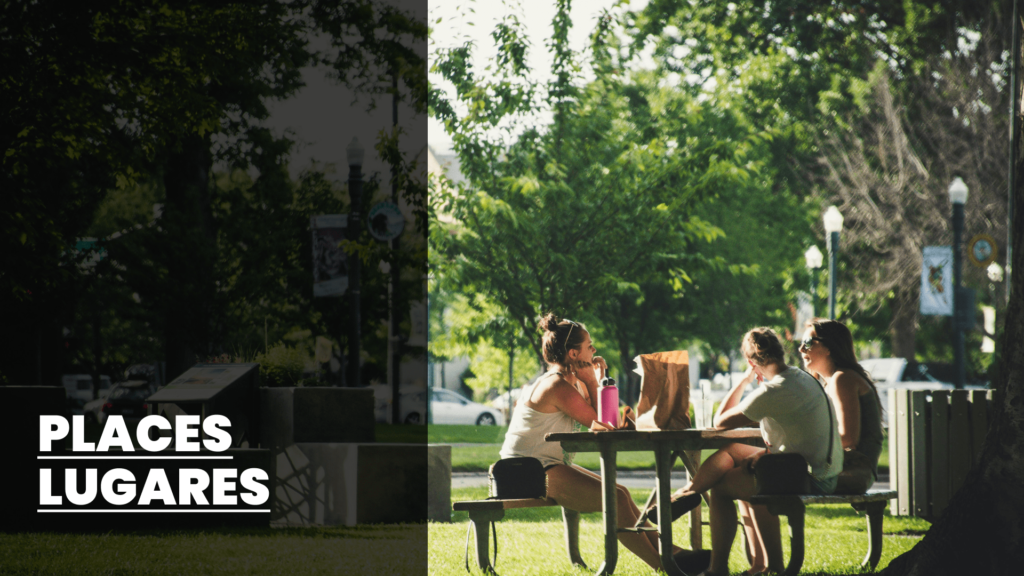
Want to learn Spanish? Try Mondly for FREE now!
Learning Spanish can feel like a big task, but it gets a lot easier when you start with something practical—like knowing the words for places of interest. If you’re at an A1 level and just beginning your journey, mastering these basic Spanish words is a great way to build your vocabulary. Whether you’re planning a trip to a Spanish-speaking country or simply want to feel more connected to the language, these words will help you move around cities, ask for directions, and explore like a local.
This is especially helpful when you’re learning Spanish for beginners. Knowing how to identify places like the beach, park, or museum can make simple conversations smoother and boost your confidence. Let’s dive into these essential words together!
As a Spanish learner myself, I’ve learned the hard way that aiming for fluency right away isn’t the best goal when learning a new language. So, if you’re just starting out with Spanish, I highly recommend familiarizing yourself with the CEFR (Common European Framework of Reference). It will guide you on what to focus on at each stage of your learning journey. Check out this article to get a clearer idea of what you should learn as a beginner and what’s expected of you along the way.
Basic Spanish Words: Places of Interest (Lugares de interés)
Let’s start with some of the most common places of interest you might come across:
- La playa (lah PLAH-yah) — Beach
- El parque (el PAHR-keh) — Park
- El museo (el moo-SEH-oh) — Museum
- La biblioteca (lah bee-blee-oh-TEH-kah) — Library
- El cine (el SEE-neh) — Cinema
- El teatro (el teh-AH-troh) — Theater
- El estadio (el es-TAH-dee-oh) — Stadium
- La plaza (lah PLAH-thah) — Square
- El mercado (el mehr-KAH-doh) — Market
- El centro comercial (el SEN-troh koh-mehr-SYAL) — Shopping mall
- La iglesia (lah ee-GLEH-syah) — Church
- El castillo (el kahs-TEE-yoh) — Castle
- El zoo (el SOH) — Zoo
- El puerto (el PWEHR-toh) — Port
- La montaña (lah mon-TAH-nyah) — Mountain
It’s a simple list, but incredibly useful. Imagine walking through a city and actually recognizing these words on signs or in conversations—that’s a great feeling!
Using These Words in Simple Sentences
Knowing the words is a solid start, but using them is what really makes them stick. Here are some easy sentences you can try:
- ¿Dónde está la playa? – Where is the beach?
- Quiero ir al museo. – I want to go to the museum.
- ¿Hay un parque cerca de aquí? – Is there a park nearby?
- Vamos al cine esta noche. – Let’s go to the cinema tonight.
These are straightforward, but they work. You don’t need complicated grammar to ask where the beach is or suggest a movie night!
Try Mondly for Free Now!
Want to improve your Spanish as a beginner? I personally recommend Mondly, as it helped me tremendously when I was just starting out. With its interactive lessons and real-world conversations, it’s an excellent tool for expanding your vocabulary and building confidence in Spanish. Try Mondly now for free!
Making It Stick: A Simple Practice Tip
One trick I use to remember new words is creating a mental map of my own city—but in Spanish. I picture my local park and call it el parque. The shopping mall becomes el centro comercial. If you do this regularly, you’ll start thinking in Spanish without even realizing it.
Another way is to casually slip these words into your thoughts. Instead of thinking “I’m going to the library,” try “Voy a la biblioteca.” It feels small, but it’s a great habit for building fluency.
Final Thoughts: Learning Spanish for Beginners
Learning these basic Spanish words for places of interest doesn’t just grow your vocabulary—it gives you confidence. Imagine strolling through a Spanish-speaking city, spotting a sign for el museo or la plaza, and actually knowing what it means. It’s a small win, but those small wins add up. So next time you’re out, mentally rename a few places around you in Spanish. Before you know it, these words will feel like second nature. Happy exploring!


